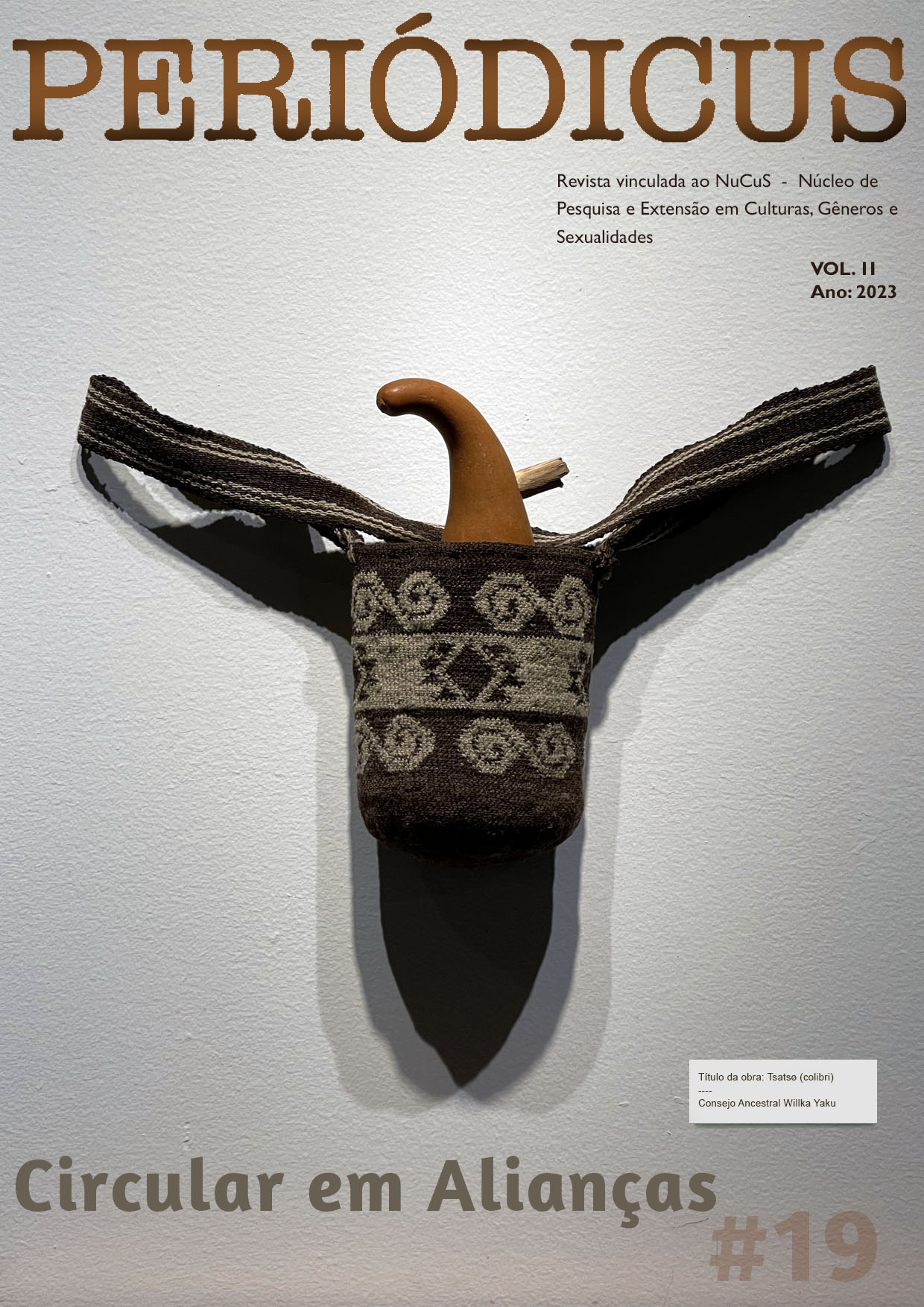Delirium ambulatorium
ex/orbitances, opacity and radical study to dissolve the Ordered World
DOI:
https://doi.org/10.9771/peri.v2i19.55200Abstract
If the city is a territorialized space, marked by diagrams of forces that relegate dissident lives to social and subjective death, exceeding its logic is a fundamental condition for the production and sustenance of more open, fractal ways of life. This text is the precarious attempt to record experiments and escapes carried out by me to ex/orbit not only the modern/colonial city, but the world that sustains it. I argue that ex/orbitance functions as a radical ancestral technology. I then engage in sharing how my wanderings allow me to study the Ordered World and some of its sustaining matrices. I conclude the text by locating visibility as a tool of the Understanding that marks the world as we know it, and by advocating for opacity as a war machine to dissolve the Ordered World and to contemplate the Implicated World. My reflections are composed of radical black-transvestite thought, a certain critical anthropology, and the philosophy of difference.
Downloads
Downloads
Published
How to Cite
Issue
Section
License
Copyright (c) 2023 Kevin Gomes

This work is licensed under a Creative Commons Attribution-NonCommercial 4.0 International License.
Authors who publish in this journal agree to the following terms:
Authors retain copyright and grant the journal the right of first publication, with the work simultaneously licensed under a Creative Commons Attribution Noncommercial License that allows the work to be shared with acknowledgment of authorship and initial publication in this journal, but prohibits commercial use.
Authors are authorized to enter into separate additional contracts for non-exclusive distribution of the version of the work published in this journal (e.g., publishing in an institutional repository or as a book chapter), with acknowledgment of authorship and initial publication in this journal.
Authors are permitted and encouraged to publish and distribute their work online (e.g., in institutional repositories or on their personal website) at any point before or during the editorial process, as this can generate productive changes and increase the impact and citation of the published work (see The Effect of Open Access).








